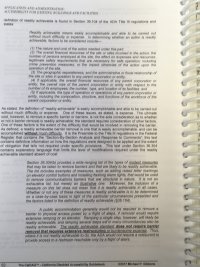Yikes
SAWHORSE
I don't know how local governments can be sued. We didn't even adopt any codes until 2004 here. There where no accessible inspections before that and most places did't have any kind of building inspector.
Yes, and here is a current lawsuit against the city of LA for failing to provide accessible housing. On the surface, it sounds like LA falsified its records. Dig deeper, and the backstory is that the various architecture firms that worked on the projects certified compliance to the city's redevelopment agency, but the architects were too focused on just CBC 11A (FHA), and they forgot about UFAS. The city relied on these compliance statements in their reporting to HUD.
I should add: in this example, the city was a partial funder of the housing projects, so they were not being sued in the role of plan check / building inspection. In other words, the local government's assistance in providing affordable housing funds is what made them liable for the omissions of the design professionals. No good deed goes unpunished.
Last edited:

